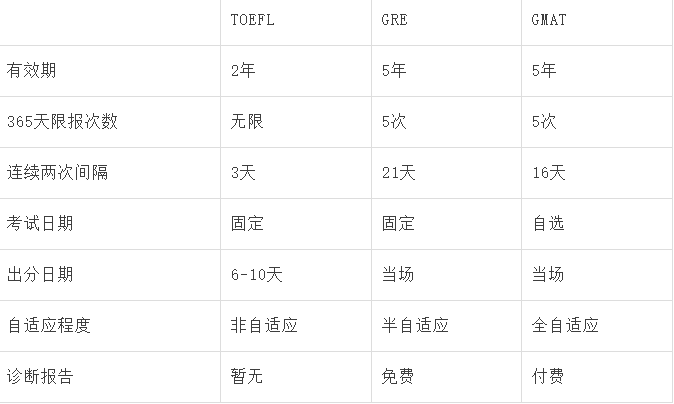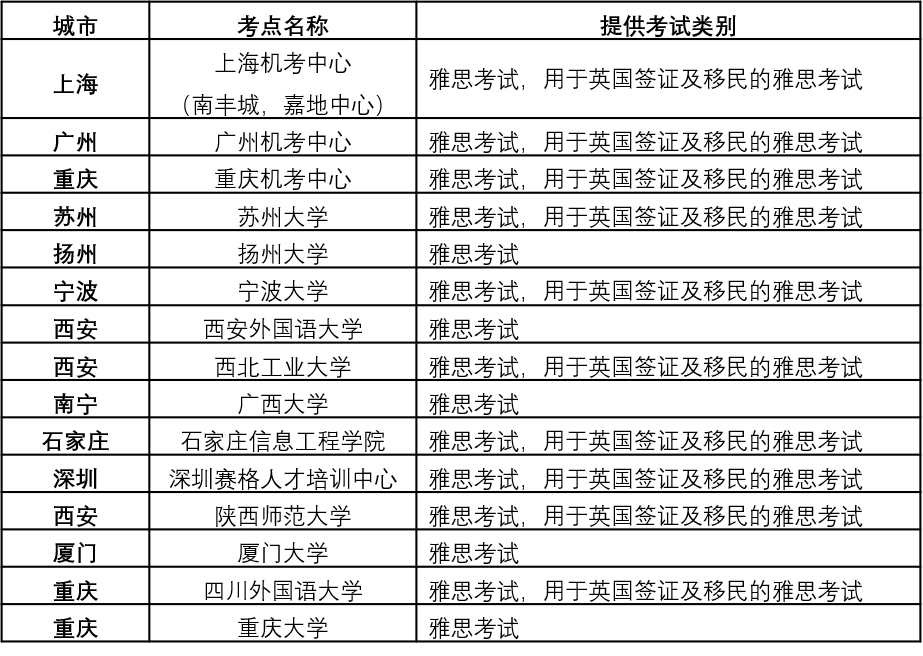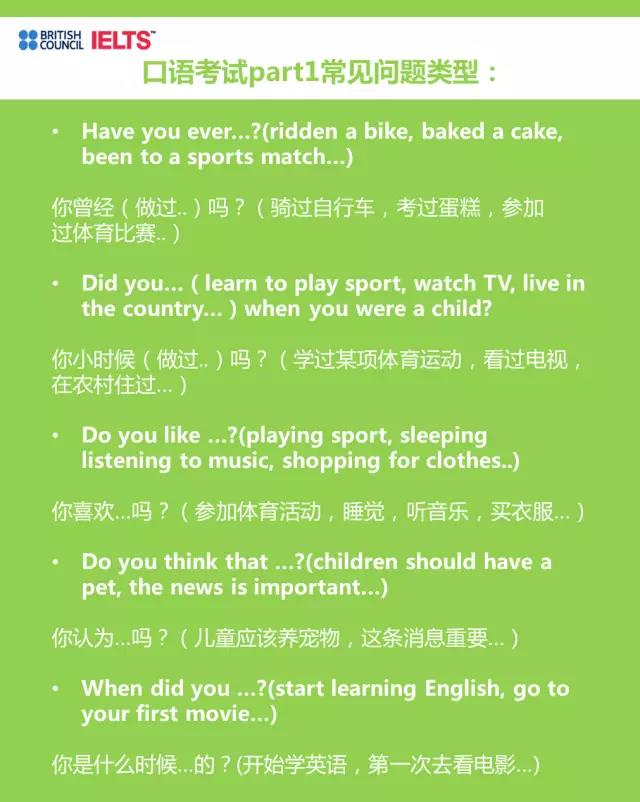托福考试中比较容易出现发挥不稳定情况的科目就是托福口语,因为口语考试较为短暂,所有回答都是一次过,今天小编给大家带来了托福口语考场提升发挥3个关键点,希望能够帮助到大家,一起来学习吧。
很多中国考生理解为说得快就是英语流利的体现,结果发音含混不清,很多考官重点考察的发音不到位,而在词语运用上过于简单,信息含量低,影响考官打高分。因此,考生在陈述过程中要有丰富的抑扬顿挫的语调。对于语句重音、语调方式及停顿等,要掌握得自然飘逸。并注意口语的修辞化,对一些修辞能恰到好处地进行引用。
2、掌握好答题时间
平时考生在准备口试的时候应该强迫自己对于某个话题在最短的时间内形成一个清晰、有逻辑性的观点以及证明过程,并试图先用中文表达出来,以后再慢慢地过渡到英语上面去。
西方人在口语表达时会事先在头脑中形成类似于写作一样的大致的逻辑框架,对开头(提出论点),中间(发展论点),结尾(总结或辨析)进行规划。所以学生只要应用了逻辑的开头,以此来陈述立场,进而发展论点,就会让考官形成思想认同,觉得你这个人逻辑思维到位,从而取得高分。而很多中国考生过于“含蓄”,回答问题毫无计划性。以这种思维方式来与西方人进行沟通,不仅影响双方理解,时间(通常是45秒-1分钟)也不允许。
新托福口语考试共有六个题目,其中尤以后四个题目更加充分体现了融读、听、说在一起的特点。也就是说,在回答问题时,你不必慷慨激昂地陈述自己的观点,而是要利用听读材料中的具体信息回答所提出的与材料有关的问题。这其实就是在考察考生是否具备了对先前读到、听到的材料进行快速加工(归纳、总结、融合),然后再口头输出(变成自己的话)的口语复述能力。因而,为取得理想的成绩,在口试中,口语复述应遵循如下原则:
准确性强调要准确挖掘与获取听、读材料的中心思想与细节内容,不能任凭主观臆想;同时还要注意用准确的语言输出。
完整性指的是:一要全面采集与应用听、读材料的信息,特别是不能遗漏任何重要的细节;二是所提供的答案语言要完整。
3.客观性原则(Objectivity)
客观性是指要客观陈述材料内容,不能妄加主观评论(除非有这样的要求)。
简洁性强调的是要采用简练的口语进行复述,不应过分堆砌辞藻。(当然了,几十秒钟的时间也不允许这样做。)语言要朴素,同时还要注意避免说出与主题无关的话语,更不能车轱辘话来回说。
句子之间的关系多种多样,常见的有:并列关系、因果关系、递进关系、转折关系和相互解释关系。Women could and did play a part in this process of settlement. Iceland, for instance, was uninhabited, and a permanent population could only be established if women also made the journey there. (后一句的具体事例为前一句提供说明与解释)People borrowed more and more money so that they could buy these shares. Because of this, the American people started to believe that share prices could only go up further. (“because of”明显的因果关系)Astronomy is a science that deals with all the celestial bodies in the universe. Astronomy includes the study of planets and their satellites, comets and meteors, stars and interstellar matter, star systems and clusters. (后一句是对前一句celestial bodies 的进一步解释)Previously it was believed that due to the Archaeopteryx’s (始祖鸟) underdeveloped anatomy, it would not have been able to fly. However, research by the London Natural History Museum into its brain developed and that it had good vision and a good sense of balance — all the requirements for a creature to be able to fly. (“However”转折对比)
阅读时,我们可以根据段落中出现的一些信号词(Signal Words)来判断句子与句子之间的关系,掌握段落发展线索,来调整阅读速度,提高阅读质量。1.显示相同信息的信号词:There has been an upsurge of interest in chamber music. Likewise opera is receiving a boost from increased record sales.“likewise”这一信号词显示了前面所提到的idea后面还要再一次出现。因此,阅读时见到这样的信号词无须放慢阅读速度。这样的信号词还包括:and, furthermore, more, than, that, also, likewise, moreover, in addition, what is more, for instance, for example2.显示思路转折的信号词:
I’d like to go but I’m too busy.“but”前后是完全不同的信息描述,它向读者显示了作者的思路在这里有了转折。阅读时,碰到这样的信号词我们需放慢阅读速度,以准确获取作者真正想要说明的意思。这类信号词还有:although, however, on the contrary, but, in spite of, otherwise, despite, nevertheless, yet3.显示因果关系的信号词:
As a result of the pilots’ strike, all flights have had to be cancelled.
All flights have had to be cancelled as a result of the pilots’ strike.所有航班被取消的原因是因为飞行员们的罢工;飞行员们的罢工导致了所有的航班不得不被取消。显示因果关系的信号词还有:for, thus, because, for this reason, so, therefore, as, since, consequently4.显示顺序的信号词:Internet speeds communication between companies, among co-workers through video-conferences, and among other individuals. First, media companies use the Internet for online news, or to broadcast audio and video, including live radio and television programs, while individuals use the Internet for communication, entertainment, finding information, buying and selling goods and services. Second, the notion of distance disappears thanks to the Internet. People also enjoy instant messaging to exchange text messages or pictures in real time, with real-time video and sound. Finally, scientists and scholars use the Internet to perform research, distribute lecture notes or course materials to students, they communicate with colleagues, and can also publish papers and articles.抓住了这样的信号词就把握住了作者叙述的顺序,也就分清了相对独立的论据。这样的信号词包括:first, second, third, and so on, then, after, before, next, last, afterward, finally5.表示结论/总结的信号词:In conclusion, I would like to say how much I have enjoyed myself today.词组“in conclusion”前面所提到的一些信息将在这里被归纳总结。读到带有这样的信号词或短语的句子时,应格外留心注意,它们往往会向我们提示相关段落的核心信息。表示结论或总结的信号词和短语还有:as a result, finally, therefore, accordingly, in short, thus, consequently, in conclusion, so, in brief, in a word。
★ 英语口语3000句第一课(1-94)
★ 英语口语
上一篇:托福口语哪些情况特别容易说错呢
下一篇:托福口语备考如何提升背诵效率





